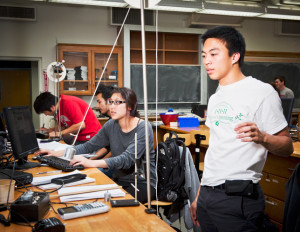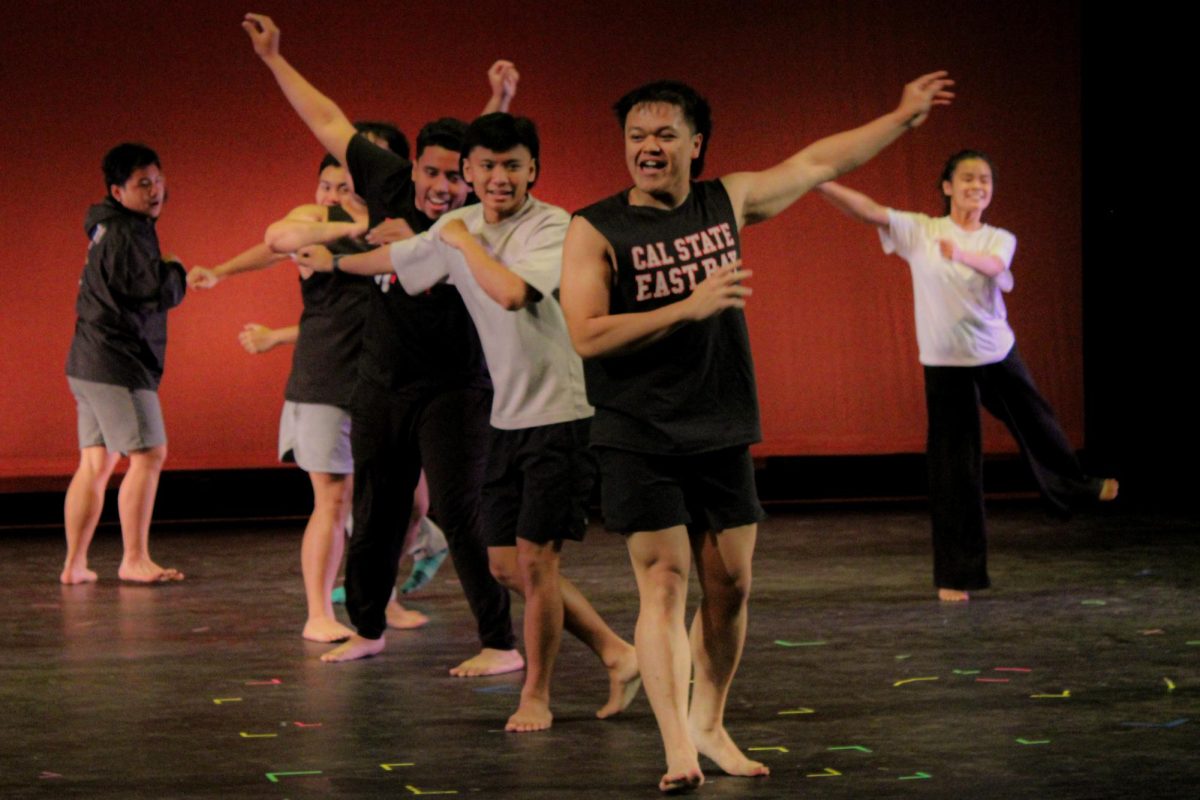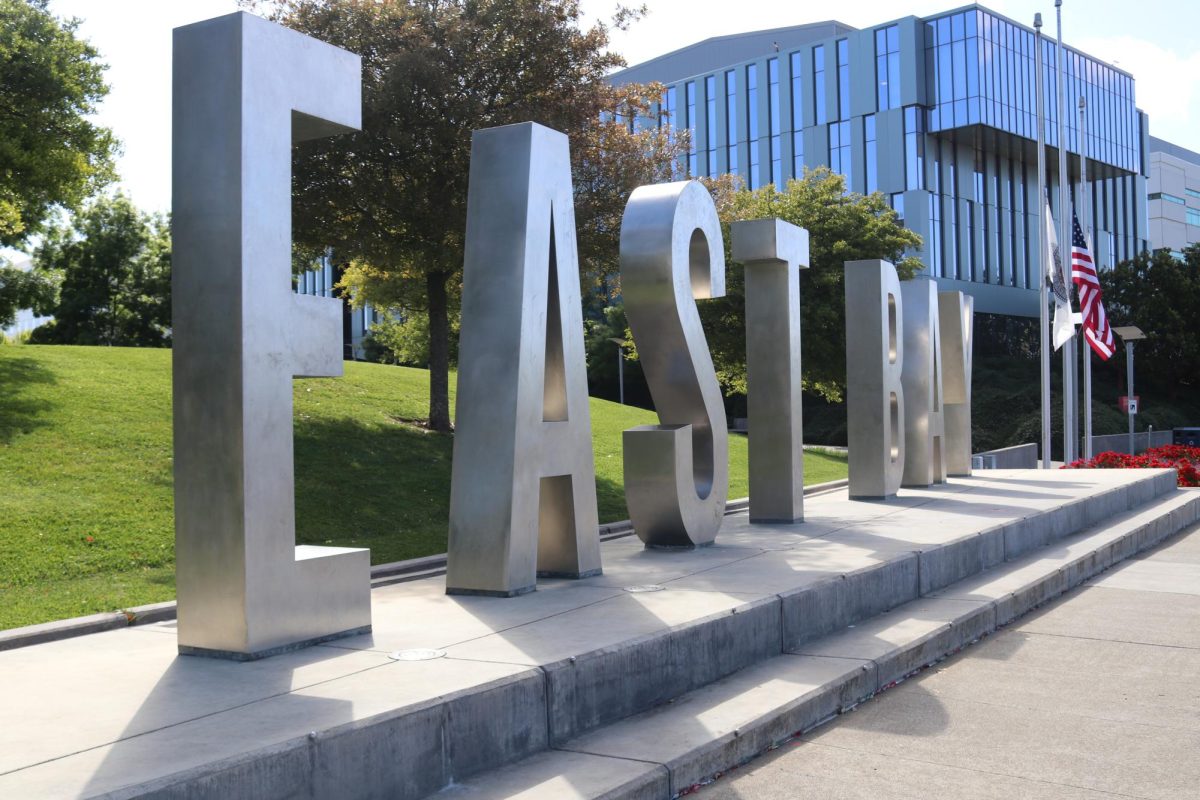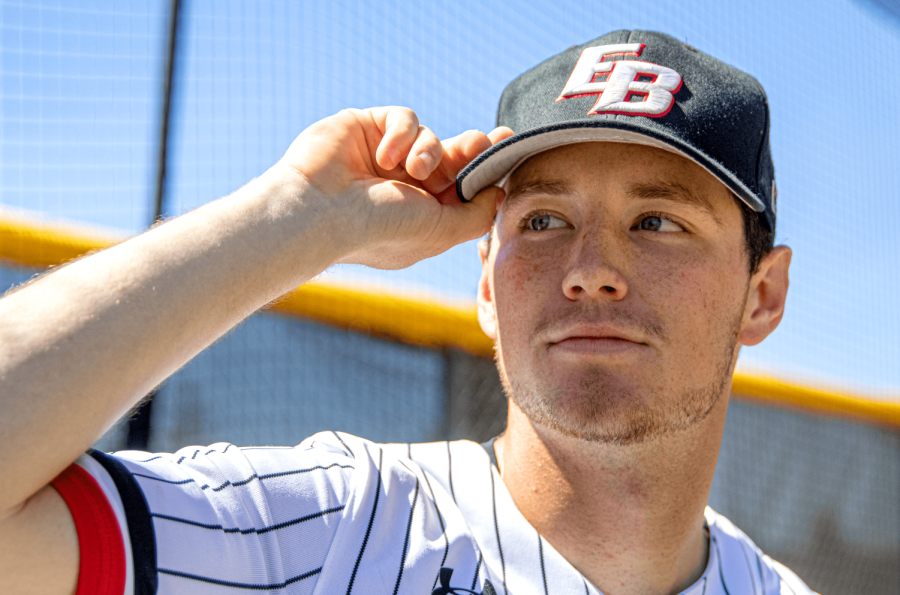
conservation of energy in a simple lab experiment.
A recent issue brought to light by an article by The New York Times on Nov. 4 claimed once STEM (science, technology, engineering and math) students reach the college level, they tend to change their majors more so than any other field because “it’s just so darn hard.”
Studies cited by the article said roughly 40 percent of students planning on graduating from a STEM major end up switching to other subjects or failing to get any degree at all mainly because they weren’t adequately prepared.
It is no surprise that students in the United States are testing at lower scores in math and science than many other countries who are in direct competition over economic global power.
In December 2010, the Organization for Economic Cooperation and Development (OECD) released the results of its 2009 Program for International Assessment (PISA) test, administered to thousands of teenage students in 65 different countries to assess competency.
In science, the U.S. ranked 23rd with a score of 502, far below developing cities and countries such as Shanghai, China (575) and Singapore (542), and just one point above the average score of 501.
In math, the U.S. fared even worse, ranking 32rd on the PISA test with a score of 487, 10 points below the average score. Shanghai, China was number one with a score of 600.
Getting students up to standards to ensure the U.S. will be able to stack up against global rivals in innovation is an issue in dire need of activism, according to many educators.
A concern arises among educators on how to keep students engaged and prepared in science and math at the earliest age possible to produce engineers and scientists to lead the U.S.
Michael Leung, Dean of the College of Science at CSU East Bay, says this issue has affected CSUEB students quite a bit in recent years.
He believes an accurate portrayal of a science education has generally not been painted for grade school and high school students, one which over-emphasizes the “fun” aspects in the hopes to entice student interest in science but lacks in preparing them academically.
“Now we are against the world,” said Leung. “Our engineers not only have to graduate but be as good as, or better than those engineers that are produced in other countries, but we’re not producing those results.
“We always tend to make the assumption if we don’t make this a fun thing they wont want to go into it. I don’t believe that, I think we can present children early with an honest picture and if they see that as a challenge, but something they can definitely do, they’re more likely to stay with it.”
Attributing CSUEB as a leader, by being “exceptionally good in trying to reach out” and “doing a great deal” with various outreach programs to help teachers in East Bay communities to do a better job in teaching math and science early, is a move that is long overdue.
Leung attests, “this is the first step to the solution.”
Former Biochemistry major Delia Cruz said a lack of preparation in math led her to abandon her science major for a more “open and flexible” major in a liberal arts department.
“When I got to CSUEB I found out my math skills were not good enough to be successful, even workable with a chemistry degree,” said Ramirez. “So I felt no choice but to find something else.”
The Times articles stated many students who left STEM chose a new major in Liberal Arts departments overwhelmingly because of the proliferation of grade inflation where teachers tend to award more points for “flair.”
Christine Shaw, an elementary grade math teacher in Alameda County for 22 years said this mentality needs to start early with parents and educators, as their expectations of their children’s grades in all categories should be just as demanding as their Chinese and Singapore counterparts.
“I have seen far too many students walk into class saying math is too hard so why bother? This is the core of the problem here,” said Shaw. “Why are we allowing students to think half-good is sufficient? We need to say success lies in a well-rounded education, and we should not accept anything short of excellence from our students, and parents need to be the assistance to teachers to correct that mentality early on.”
CSUEB Physics associate professors Jason Singley says a change in students’ work ethic and mentality surrounding their education, whether they choose a STEM major or another, is an important factor in improving retention.
“Students should figure out what they’re really excited about and be willing to put some energy into it,” said Singley. “If that happens to be a science degree, they should understand that its going to be a commitment in terms of time and effort, and that they should really be proactive in their education.”
Leung agrees and says this problem can see results through a cooperative and proactive movement to demand overall quality in our educational system.
What frustrates education experts is how long it has taken for most schools to make changes.
“We need to be engaged. The more people engaged and the more people take on this challenge, the better for our students,” he said.

















